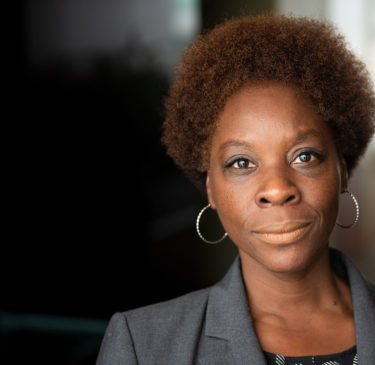NCJW supports Nancy Abudu. Here’s why:
Nancy Abudu is a first generation Ghanaian-American attorney and a well-respected member of the federal bar with a proven track record of protecting the rights of everyone, no matter their race, religion, or background. She has deep experience in the very circuit for which she has been nominated, from litigating multiple cases before the judges; to working to protect the rights of individuals in Alabama, Florida, and Georgia; to serving as staff attorney for the Circuit. Whether working in private practice, government, or not-for-profit organizations, Ms. Abudu has dedicated her career to strengthening our democracy, safeguarding the freedom to vote, preserving reproductive rights, and protecting religious liberty. If confirmed, Ms. Abudu would be the first Black woman ever to sit on the Eleventh Circuit
Nancy Abudu’s stance on important issues:
Civil Rights:
Nancy Abudu has litigated a variety of civil rights and civil liberties issues in federal and state courts, including legal challenges to state felony disenfranchisement, proof of citizenship, and voter photo ID laws; and has pushed for greater enforcement of the Voting Rights Act, the National Voter Registration Act, Help America Vote Act, and other federal laws. Ms. Abudu represented Alabama’s NAACP in the Shelby County litigation and has worked for years in the Deep South and elsewhere to ensure communities of color can fully participate in the political process.
Religious Freedom:
Ms. Abudu served as co-lead counsel representing a Collier County, Florida police officer who alleged that he had been subjected to religious discrimination during his employment with the sheriff’s office, in violation of Title VII. This person, a Hasidic Jew, alleged that his supervisors would frequently make fun of his attire, routinely schedule him to work on Saturdays, and try to pressure him into eating pork and other prohibited foods — even though they were aware that his faith prohibited him from doing these things. She also served as lead counsel in a case involving Muslim prisoners incarcerated in the Miami Dade county jail who were being denied Halal meals. The case ended in a settlement in which the plaintiffs and other similarly situated individuals began receiving Halal means and secured additional accommodations during Ramadan. She also sued Brevard County, Florida to enjoin the County’s policy of refusing to allow atheists or secular humanists to deliver county invocations.
Reproductive Rights:
Nancy Abudu litigated a challenge to Florida’s 24-hour waiting period law, a medically unnecessary law that would force virtually all people seeking abortions, unlike any other patients in Florida, to delay the care they need against their will and regardless of their personal circumstances. The law is currently blocked by court order.
Sex Discrimination:
Ms. Abudu challenged Florida’s denial and delay in hormone therapies to a transgender inmate.
Nancy Abudu’s Experience and Education:
Experience:
She serves as the Director of Strategic Litigation for the Southern Poverty Law Center (SPLC) as well as the Deputy Legal Director for SPLC’s voting rights program. From 2005-2013, she worked for the ACLU’s national voting rights project in Atlanta, and from 2013-2018, served as the legal director for the ACLU of Florida. From 2002-2004, Ms. Abudu was a staff attorney with the Eleventh Circuit Court of Appeals and, from 1999-2001, she was a litigation associate with Skadden, Arps, Slate, Meagher, and Flom LLP in the firm’s New York office. While at Skadden, Ms. Abubu represented domestic violence survivors for the Legal Aid Society of New York. Abudu has submitted more than 80 briefs before the US Supreme Court, US Circuit Courts, and US District Courts.
Education and Recognitions:
Ms. Abudu received her BA from Columbia University and her JD from Tulane Law School with honors. She was selected to serve as an advisor and mentor for Harvard Law School students considering jobs in public interest as a prestigious Wasserstein Fellow and has received numerous other awards and honors.
Professional Affiliations:
Currently, Ms. Abudu serves on the American Bar Association’s (ABA) Standing Committee on Election Law and the Task Force on Building Public Trust in the American Justice System as well as on the Georgia Association of Black Women Attorneys. She has also served as an international election observer in Albania, as a member of the ABA’s Standing Committee on Election Law and their Working Group on Building Trust in the American Justice System.
